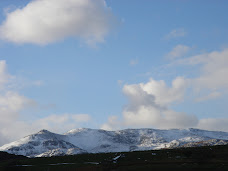Sit down with any Palestinian over the age of 50 on a street in Gaza and, if you’re British, you’ll soon be discussing Arthur Balfour.
It was in November 1917 that the Conservative foreign secretary promised the leader of Britain’s Jewish community that Palestine would be a Jewish homeland.
“It’s all your fault,” is a line I’ve heard – delivered reasonably calmly. Though nobody’s around to remember, people who remember the expulsion of their grandparents by the Israelis in 1948, and Balfour’s promise, are very capable of joining the dots.
British imperial troops had spent the best part of 1917 fighting through Gaza, against Turks dug in to defend the road to Jerusalem.
In the past few days, I’ve been speeding up and down the same roads and towns they fought through: Rafah, taken in January 1917; Khan Younis, seized by the Brits and ANZACs in March.
In Gaza City, the capture of which triggered discussions leading to the Balfour Declaration, you can see today the same military means deployed – gunboats and air strikes.
So, events in this corner of the Mediterranean today are just the latest in a complex pattern of cause and effect set off by the first world war.
I’ll try to visit the British war cemetery on Monday. Last time I sped past it two days ago, Israeli Merkava tanks were bracketing the civilian road with shell fire, so we’ll take a view.
Surveying the hand-drawn maps of the British Eastern Expeditionary Force, it’s a reminder that all wars create “facts on the ground”.
History of Gaza
The Allied victory shattered the Ottoman Empire, and brought British and French imperial rule to Palestine, Lebanon and Syria between the wars. The Balfour declaration brought Zionist settlements to Palestine. The Holocaust and the Israeli armed struggle against the British after 1945 created the nucleus of Israel, with the mass expulsion the people here remember as the Nakba – the catastrophe.
Today, Gaza’s human geography is ranged around refugee camps created then, that became towns: the Beach Camp, just up the road from my hotel near Gaza City’s fishing port; Jabaliya where they shelled a school; Khan Younis, Al Burj, where I picked up a Palestinian journalist with her two-year-old child and we had to sing nursery rhymes as shells whizzed into the fields around our car.
Wars create facts and the ones created today, tomorrow, will be created on top of the ones created by a British empire that promised things it could not deliver.
For Balfour promised “nothing shall be done which may prejudice the civil and religious rights of existing non-Jewish communities in Palestine”.
By the time Britain had to make good on that promise, in 1948, it was too weak to do so.
That’s why my British face and accent do not go down universally well here, among those who know their history.
Balfour made his promise in the year Russian workers seized power and stopped the war, led by a party – the Bolsheviks – containing many Jews. The explicit aim (of Balfour) was to rally Zionist Jews to the Allied cause, and away from the revolutionary movements that were sweeping Europe.
Today, British foreign secretaries don’t do declarations anymore. They consult their inboxes, where they hear widespread angst from ordinary Brits over what the Israelis are doing to Palestinian civilians.
War ‘is never worth it’
Meanwhile, British education secretaries tell us that the “war is hell” meme, that which unites so much of Britain’s popular memory of the 1914 war, is anti-patriotic.
My response to that, with the smell of death on my clothes and pictures of shattered bodies fading too slowly from my mind – we never show the worst on TV but we film it, for the record is this: war is utterly futile. It is never worth it. Not even for the noblest empire or the most just resistance movement.
Sometimes, it is forced on you. If you have to do it, do it humanely and with mercy and finish quickly. But don’t revel in it.
Too many people – and not just the leaders here in Israel Palestine but the ordinary people – do revel in it. Our forefathers, for all the “pro patria mori” rhetoric (for one's country), did not revel in it. One hundred years of war, betrayal, genocide and the failure of secular ideologies have brought us to this point.
I’ve been saying this all week but I’ll repeat it: I don’t have a message for Cameron, Netanyahu or Obama. But I will offer them full access to our unedited camera tapes.
I would play them on a widescreen cinema unedited without pause. Nobody would be eating popcorn.
Follow @paulmasonnews on Twitter
- See more at: http://blogs.channel4.com/paul-mason-blog/brit-gaza-fault-line-heard-lot/2094?intcmp=news_header_blogs_top#sthash.vAr04Ukc.dpuf
















No comments:
Post a Comment